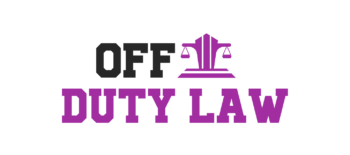Attorney advertising and solicitation play a vital role in the legal profession. Lawyers use various mediums to promote their services and reach potential clients. However, there are certain ethical considerations that attorneys must keep in mind to ensure their advertising and solicitation practices are both effective and ethical.

Transparency and Accuracy
One of the key ethical considerations in attorney advertising is transparency and accuracy. Attorneys should provide truthful and accurate information about their qualifications, experience, and the services they offer. Misleading or exaggerated claims can harm the reputation of the legal profession and undermine the trust of potential clients.
Attorneys should avoid making statements that create unjustified expectations or imply guaranteed results. Instead, they should focus on providing factual information that allows potential clients to make informed decisions.
Confidentiality and Privacy
Confidentiality and privacy are essential ethical considerations in attorney advertising and solicitation. Attorneys must ensure that they do not disclose any confidential or privileged information about their clients while promoting their services. They should also respect the privacy of their clients and refrain from using their personal information without consent.
It is important for attorneys to strike a balance between providing enough information to attract potential clients and respecting the privacy rights of their current and former clients. They should use generic case examples or hypothetical scenarios instead of disclosing specific details that could breach client confidentiality.
Avoiding Misleading or Deceptive Practices
Attorneys must avoid engaging in misleading or deceptive practices when advertising or soliciting clients. This includes false or misleading statements, testimonials that are not representative of typical outcomes, or creating unrealistic expectations.
For example, an attorney should not imply a special relationship with judges or claim to have inside knowledge of the legal system that could give them an unfair advantage. Such practices undermine the integrity of the legal profession and erode public trust.
Compliance with Advertising Rules and Regulations
Attorneys must ensure that their advertising and solicitation practices comply with the rules and regulations set by the relevant governing bodies. Each jurisdiction may have specific guidelines and restrictions on attorney advertising, such as prohibiting certain types of claims or requiring disclaimers.
These rules are in place to protect the public and maintain the integrity of the legal profession. Attorneys should familiarize themselves with these regulations and ensure that their advertising materials and solicitation practices are in full compliance.
Attorney advertising and solicitation are important tools for lawyers to promote their services and reach potential clients. However, it is crucial for attorneys to approach these practices with a strong ethical framework. Transparency, accuracy, confidentiality, privacy, avoiding misleading practices, and complying with advertising rules and regulations are all key considerations that attorneys must keep in mind to maintain the trust and respect of the public.














